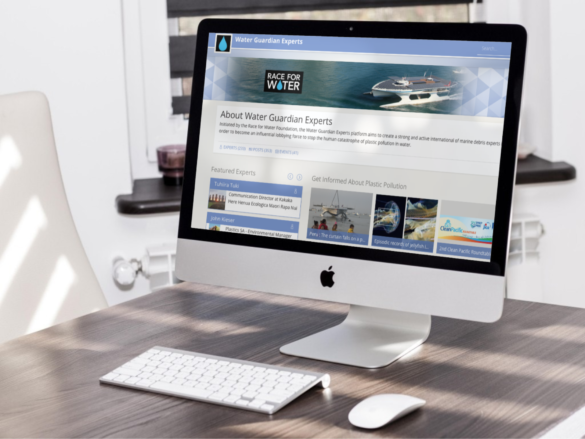Through the LEARN programme, the Race for Water Foundation conducts field investigations with local stakeholders to better understand the real and territorial impacts of major ocean issues, while also hosting scientific missions on board its zero-emission vessels to advance knowledge and inform public and civic decision-making.
After a first Odyssey (2015) dedicated to mapping plastic pollution across the five ocean gyres, the second Odyssey (2017–2020) hosted several major scientific missions on board: ecotoxicological impact of microplastics (EPHEMARE), ageing and transformation of plastics at sea (WEATHER-MIC), distribution and impact on marine wildlife (Chile–Rapa Nui), exploration of the Plastisphere, sampling in under-studied regions (Japan, Fiji), and plastic and metal impact on coral health (AMICi).
The Ocean & Climate Odyssey (2025–2027), currently underway, expands this approach by focusing on the interdependence between ocean, climate and biodiversity, beginning with a first campaign dedicated to Posidonia seagrass in the Mediterranean.
Explore each scientific mission below.
Onboard scientific missions
Innovative scientific partnership : Collaborate with the Race for Water Foundation
Discover our call for scientific collaborations
"Meet the experts"
Our goal with these webinars is to continue to build bridges between scientists, opinion leaders, policymakers and citizens to accelerate some of the urgent changes our society needs to make to preserve the Ocean and ensure a healthy environment for all of us.
A platform for exchange : "Water Guardian Experts"
After its first Odyssey, the foundation launched an international communication platform to enable exchanges and share its expertise in the fight against plastic pollution in the oceans.
Today, this platform gathers a whole community of experts, the majority of whom have been encountered during the two Odyssey’s stopovers: researchers, organisations, associations, institutions, governments, entrepreneurs and manufacturers. It is now open to the public.
